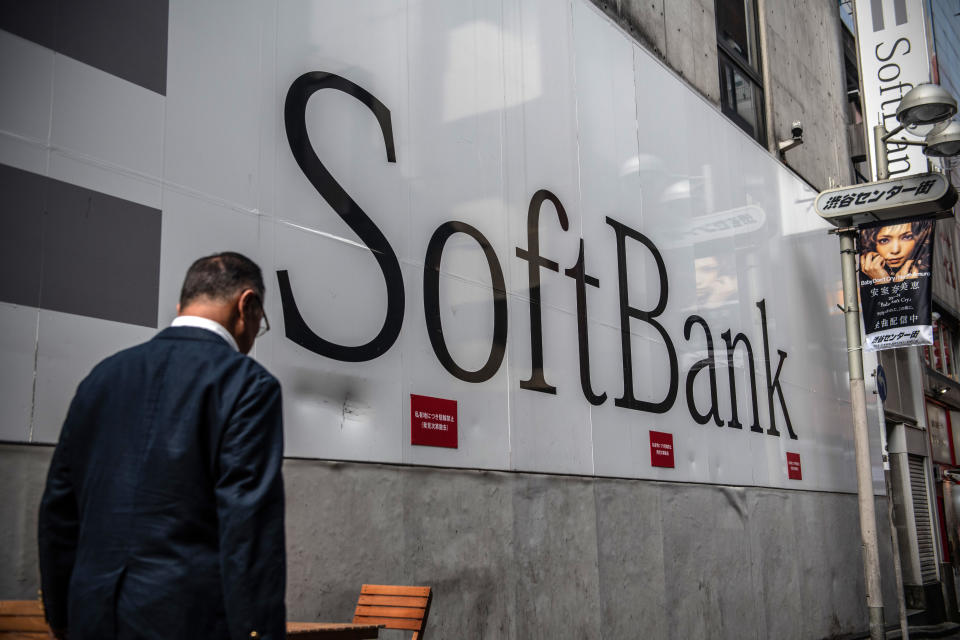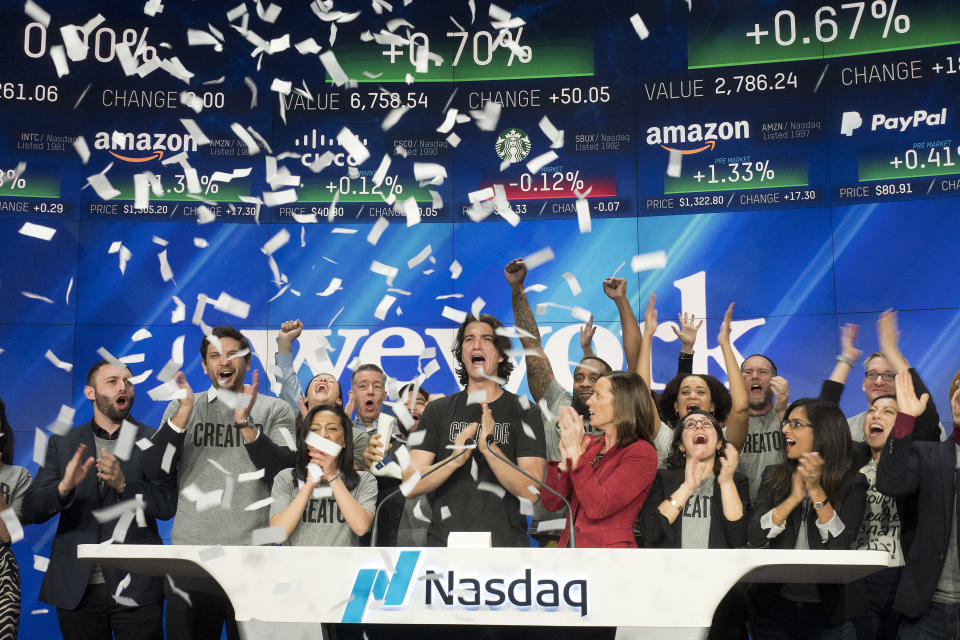What really fueled the 2019 unicorn IPO funeral
Just six months ago, if you looked at one of the many “unicorn lists” out there that rank the most valuable privately held companies in America, you would have seen all of these names near the top: Uber, Lyft, Pinterest, Slack, Peloton, WeWork, and Palantir.
The first five names there all made it to the public market, though a couple of them arguably got there gasping for breath. Uber (UBER) is down 30% since its debut; Lyft (LYFT) is down 55%; Slack (WORK) is down 40%; Peloton (PTON) is down 17%. (These declines are based on Oct. 2 closing prices.)
WeWork made governance changes after huge backlash to its S-1 filing, then delayed its IPO, then finally called off its IPO. Palantir, widely thought to be planning a 2020 offering, is delaying an IPO and raising more private money instead. Endeavor, the talent house formerly called WME-IMG, called off its IPO.
Want even more examples of the polluted air in unicorn land? The gig economy platform Fiverr is down 28% since its IPO; security software company CrowdStrike (CRWD) is down 11% since its IPO; both unicorns went public in June.
The Renaissance IPO ETF (IPO) — a fund that tracks the performance of newly public companies — is down 7% in the past six months. In 2015, tech investor Bill Gurley famously predicted we’d see “dead unicorns” soon. His call may have just been four years early.
The outlook for once-hyped IPOs has clearly soured. But what really prompted the unicorn funeral?
SoftBank’s money
One common thread between two of the biggest ailing unicorns this year: SoftBank.
The Japanese multinational, through its gargantuan $100 billion Vision Fund, pumped nearly $10 billion in venture money into Uber, and more than $10 billion into WeWork.
SoftBank is spreading its bets all across Silicon Valley (some of its other investments yet to pay off include Fanatics, SoFi, and DoorDash) in an almost comically excessive display of what the VC strategy has become: throw huge amounts of money at a huge list of hot companies in the hopes a few will hit.
SoftBank deserves some of the blame for the unicorn funeral— its fat investments prompt the ballooning valuations that in turn build hype and media attention for these rarely-profitable companies, hype that stokes inflated IPO expectations.
WeWork is the ultimate example: it filed to go public with a $47 billion valuation and $12 billion in SoftBank investment— then it repeatedly lowered its own offering valuation, to $20 billion and then to $10 billion— then it yanked the IPO.
SoftBank is in the red on its Uber stake, by the way, even after cashing out nearly $250 million worth of shares at the IPO.

CrunchBase reports that SoftBank’s Vision Fund is responsible for more than 10% of all venture capital dollar volume worldwide so far in 2019. That’s too much influence.
Diminishing appetite for risk
Of course, the entire point of venture capital is risk: firms take the risk of giving money to a business that hasn’t yet really proven itself, in an effort to help the business grow successful and, of course, to get a payoff when the business exits by selling or going public.
But the unicorns that have debuted in the past six months, and those that aim to debut in the next year, are doing so under the cloud of a trade war between the U.S. and China, the uncertainty of the 2020 presidential election, and slowing growth for a slew of foreign economies.
Even without that macro uncertainty, the recent IPO run is telling us that retail investors (you, a regular person) and institutional investors (hedge funds) are becoming less interested in taking on that risk. If it was once appealing to buy shares in a hot tech name that isn’t yet making money and won’t necessarily make money for a long time, it isn’t very appealing anymore.
Lack of profitability is not sexy.
Our daily live show guests at Yahoo Finance are all sounding that alarm lately, saying the same thing when we ask about the recent ruinous IPO run. “The appetite for risk has certainly diminished,” says Rebecca Felton, chief market strategist at Riverfront Investment Group. “Anybody playing those stocks is just gambling their money,” says George Seay, co-founder of Annandale Capital. “There’s this kind of urban myth that IPOs just go straight up once they come out, and the reality is that most IPOs finish the first trading day at or below their offering price.”
Uber, Lyft, and Slack all made two key mistakes, says former Cisco CEO John Chambers: “They waited too long to go public, that’s part of the regulatory issue we face; and shareholder activism, which I think has to change.”
So when did the tech IPO tide turn? What was the first catalyst? Yahoo Finance’s Myles Udland thinks it was all the way back when Snap (SNAP) went public in 2017. “Snap came public with all the characteristics of all these companies—super-voting shares, young founder, visionary,” Udland says. “They hired one guy, Imran Khan, to run the IPO, a former banker... and it just didn’t really pop off.”
But the very successful debuts earlier this year of Beyond Meat, Zoom, and (initially) CrowdStrike buck that theory.

If you look at the biggest, most-hyped names of 2019 and their charts, Uber and Lyft provide a pretty convincing starting point for the current bad times. “I think it all started with Uber and Lyft,” says Wedbush analyst Dan Ives.
But WeWork’s disastrous month has also been a major downer, infecting other recent debuts, and potentially imminent debuts, with negativity.
WeWork’s collapse is probably more to blame for Endeavor pulling its IPO, for example, than Peloton’s poor debut was, even though Endeavor called off its IPO immediately after Peloton’s brutal first day. The news cycle of negativity around a massively overvalued unicorn was bad for almost everyone else in tech.
Macro narratives vs case-by-case problems
But chalking up the IPO negativity to general negative sentiment, to a convergence of multiple events and macro factors, excuses some of the specific problems with these individual companies.
WeWork is not a very good business. For a while, it clearly convinced its backers otherwise—and no one was more enamored than Masayoshi Son. WeWork leases office space. That’s about it. (And in many cases CEO Adam Neumann is the one who leased it out to his own company.) There are other companies that do this and make more money doing it, they just aren’t sexy Silicon Valley startups that got valued and hyped like tech disruptors.
Uber and Lyft, similarly, went public with numerous lingering problems to their business models, from regulation to unfriendly city governments to harassment issues. Uber is fighting California now, and Lyft is facing a class-action lawsuit from assault victims.
Peloton went public despite an active $350 million lawsuit against the company for using unlicensed music in its classes. It disclosed music rights as a risk in its S-1 filing, but that risk has worsened in the past month.
And the unicorn demise could trigger a larger market meltdown, though that hasn’t happened yet. “The failure of some of these high-flying IPOs is making me a little nervous,” says Tom Essaye of Sevens Report Research. “When you see this trend of high-flying names falling flat, it sometimes can lead to more cautious investor behavior.”
The solution? It could be more direct listings, the route Spotify and Slack both took in which a company skips the traditional pre-IPO roadshow, avoids much of the hype, and does not create any new shares in the offering. Morgan Stanley and Goldman Sachs hope so, at least: both have been making their direct-listing pitch to private unicorns.
NOTE: Due to a bug with one of our charts, this story initially had incorrect information about how Pinterest stock has performed. That line has been removed.
—
Daniel Roberts is a senior writer and show host at Yahoo Finance. Follow him on Twitter at @readDanwrite.
Uber, Lyft stock performance shows 'appetite for risk has diminished'
Netflix stock is vulnerable in a recession, Nomura says
Meet the ‘phoenix’ stocks: Zoom, MongoDB, PagerDuty and more
How Eventbrite’s horrible stock performance is hurting Square
